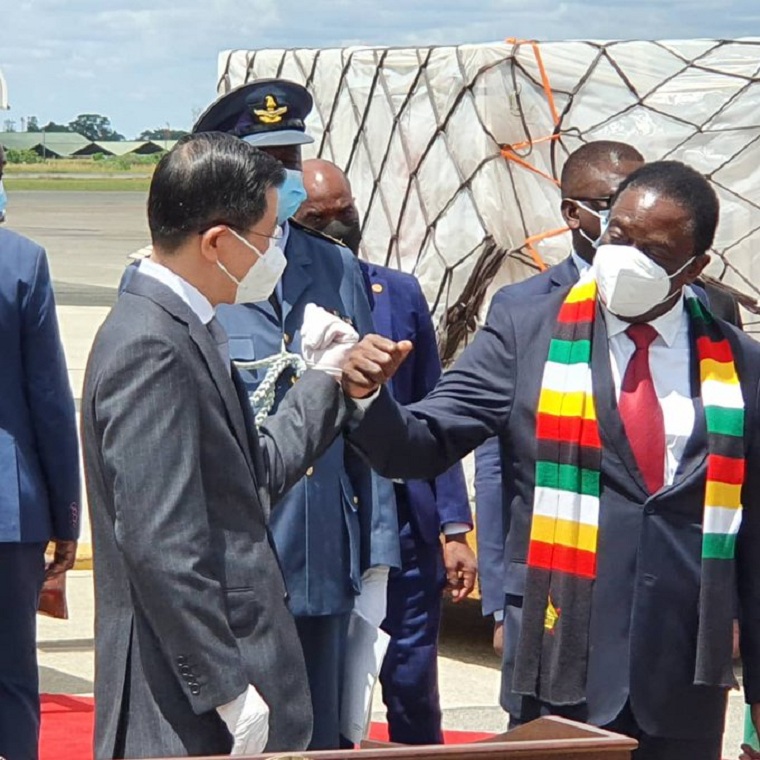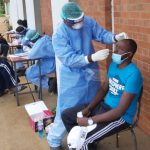It has negotiated a deal with Johnson & Johnson for 400m single-shot vaccines. In doing so, it had to overcome EU resistance. It was only after the South African president Cyril Ramaphosa intervened and threatened to ban all vaccine exports from South Africa that Europe agreed all J&J’s future African-produced vaccines could stay in Africa from October. Now 30% of Africa’s adult population are guaranteed vaccination, even though it will take until September next year.
But vaccines are not yet available to meet Africa’s vaccination target, set at 60% of adults, or to cover that other 30% of people who were promised vaccines provided by the west. As a result, I am told the African Union has had no choice but to open negotiations with China to buy at least 200m Chinese-made vaccines.
The hold-ups are now so serious that a vaccine “war room” has been created by the IMF, World Bank, WHO and World Trade Organization (WTO) to help track, coordinate and advance the delivery of vaccines. Despite this, only political leadership from the G7 countries, which have negotiated vaccines far in excess of their population numbers, will ensure that all continents receive an adequate supply.
The world will manufacture around 6bn more vaccine doses by December and ramp up production by many billions more next year. This supply could be sufficient for every country to meet the 60% vaccination target by next summer.
Problems that will perpetuate the inequalities in vaccine distribution can only be resolved with a level of global coordination that has so far been absent among G7 and G20 leaders.
Two policy changes are urgently needed, which Joe Biden, Boris Johnson and Italy’s prime minister Mario Draghi, the G20 president, must now deliver at a special G20 vaccines summit that should be convened next month.
First, a virtuous circle must be created, starting with guaranteed international funding from the richest countries, to underwrite and accelerate the development of new global manufacturing capacity in poorer countries. This would include expediting the transfer of technology through licensing agreements that would benefit from a temporary waiver on vaccine patents.
Still, Africa needs vaccines immediately. As things stand, the US has optioned 1.96bn additional doses. The European Commission has access to 1bn extra shots, while Canada has secured 191m (and at one stage had procured almost 10 vaccines per citizen).
Due to over-ordering, their populations will probably not use all these vaccines, but in the process of securing preferential agreements rich countries have effectively locked out African countries from accessing the doses they urgently require.
G7 leaders must now step in to ensure the supplies go where they are needed most. Countries with excess supply must end their stranglehold on available vaccines and future supplies. They must not only release them to Africa, but, as the IMF and four former American finance ministers proposed, provide at least $50bn in financial support through Covax and the logistical help needed to ensure vaccines can be administered quickly and safely.
Ensuring African populations have access to vaccines is not just an imperative for Africa. It’s in all our enlightened self-interest. As Britain’s leading vaccine scientist Sarah Gilbert has said, the biggest threat we all face is Covid spreading and mutating uninhibited in unvaccinated countries.
We must keep reminding ourselves of the reason for ensuring the mass vaccination of the entire world: no one is safe anywhere until everyone is safe everywhere, and everyone will live in fear until nobody does.
By Gordon Brown, former UK prime minister in The Guardian
Editor: According to the Financial Times vaccine tracker, Zimbabwe had dispensed 22.8 vaccine doses for every 100 people as of 16 August. 14.3% of the population had received at least one dose and 8.6% were fully vaccinated.
(201 VIEWS)


